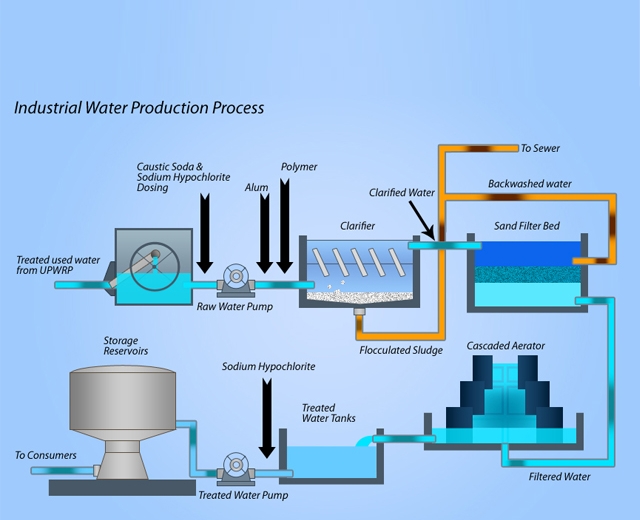Why a Water Filtration System Is Necessary for Tidy, Safe Water
Access to clean, risk-free water is a basic human right and a cornerstone of public wellness. A water purification system stands as a vital service to alleviate these risks, making certain that areas and people can access secure drinking water.
Value of Tidy Water
Accessibility to tidy water is a fundamental necessity for human wellness and health. It is important for maintaining life, supporting health, and keeping overall public wellness. Water Purification System. The schedule of safe drinking water considerably minimizes the threat of waterborne diseases, which present a considerable hazard to areas worldwide. Infected water can result in severe health and wellness problems, consisting of stomach diseases, cholera, and dysentery, especially in susceptible populations such as youngsters and the elderly.
Moreover, tidy water is crucial for sanitation and health practices, which are important in stopping the spread of transmittable conditions. Adequate supply of water supports correct cleanliness centers, advertising a much healthier atmosphere. Additionally, accessibility to secure water affects socioeconomic aspects, as it allows communities to participate in commercial and agricultural tasks, inevitably adding to economic growth.
In lots of regions, the lack of tidy water aggravates hardship and inequality, more hindering progress toward lasting advancement objectives. Making sure access to clean water is not just a public health and wellness necessary but likewise a keystone for social equity and economic growth. Initiatives to improve water high quality and framework have significant advantages, cultivating healthier areas and boosting lifestyle.

Typical Impurities in Water
Making sure the accessibility of clean water is weakened by different impurities that can jeopardize its safety and high quality. The existence of pathogens, such as bloodsuckers, germs, and viruses, postures significant wellness dangers, particularly in locations lacking appropriate cleanliness. These microorganisms can cause waterborne diseases, causing extreme ailment or perhaps fatality.
Chemical contaminants additionally provide an important issue. Hefty metals, consisting of lead, mercury, and arsenic, typically enter water materials via commercial discharges or corroded plumbing. These compounds can gather in the body gradually, causing long-term health problems such as neurological damages and developmental problems.
Furthermore, farming overflow introduces chemicals and fertilizers into water supply, which can interfere with ecosystems and adversely effect human health. Nitrates, typically discovered in plant foods, can create major problems like methemoglobinemia, especially in babies.
Benefits of Water Purification Equipments
Identifying the crucial need for risk-free alcohol consumption water, water filtration systems supply a myriad of advantages that boost public wellness and environmental sustainability. Primarily, these systems efficiently remove hazardous pollutants, including germs, viruses, heavy steels, and chemicals, guaranteeing that the water taken in is without microorganisms and contaminants. This reduction in impurities significantly decreases the danger of waterborne conditions, advertising overall community wellness.
In addition to health and wellness advantages, water filtration systems add to ecological sustainability by minimizing dependence on bottled water, which frequently creates too much plastic waste. By utilizing a filtration system, houses can reduce their carbon footprint and add to an extra lasting community. Furthermore, these systems can boost the preference and smell of water, making it much more tasty for everyday intake.

Different Kinds Of Purification Approaches

One usual approach is reverse osmosis, which uses a semi-permeable membrane to separate water from liquified impurities and solids. This procedure successfully reduces pollutants, including heavy steels and chemicals. Another commonly utilized original site technique is ultraviolet (UV) disinfection, which utilizes UV light to reduce the effects of germs and infections, making them harmless without using chemicals.
Turned on carbon filtering is another preferred strategy, making use of carbon to adsorb organic substances, chlorine, and unpleasant odors, enhancing preference and odor high quality. Purification, a process that involves boiling water and condensing the steam, successfully gets rid of minerals and impurities however may call for even more power contrasted to other methods.
Ion exchange is frequently used to soften water by replacing calcium and magnesium ions with salt or potassium ions. Each technique has its advantages and limitations, making it vital to understand their performances and effectiveness in attending to certain water high quality issues - Water Purification System. Inevitably, choosing the ideal purification technique is essential for ensuring secure and clean drinking water
Selecting the Right System
Selecting an ideal water purification system requires careful consideration of various aspects, including the particular pollutants present in the supply of water, the quantity of water needed, and the preferred purification approach. First, it is vital to conduct a water quality test to identify pollutants such as bacteria, heavy metals, or chemical contaminants. This info will assist you in picking a system that successfully targets those specific impurities.
Next, analyze your household's everyday water usage to determine the system's ability. Systems are available in different dimensions, from point-of-use filters for alcohol consumption water to whole-house devices that purify all water entering your home.
Additionally, take into consideration the filtration method that ideal fits your needs. For example, reverse osmosis is extremely reliable for getting rid of a wide variety of pollutants, while UV filtration is superb for removing bacteria.
Conclusion
In conclusion, the implementation of water purification systems is crucial for ensuring accessibility to clean and risk-free water. By recognizing the value of tidy water and the advantages of various purification techniques, areas can make informed decisions to guard their wellness and promote socioeconomic stability.
Identifying the essential need for risk-free alcohol consumption water, water purification systems provide a myriad of benefits that enhance public health and wellness and environmental sustainability.In addition to health advantages, water purification systems contribute to ecological sustainability by reducing dependence on bottled water, which typically produces extreme plastic waste. Inevitably, the fostering of water filtration systems is an aggressive action towards guaranteeing tidy, risk-free water check my blog for future generations while guarding public wellness and the environment.
Picking an appropriate water purification system calls for cautious consideration of numerous elements, including the particular contaminants present in the water supply, the volume of water needed, and the preferred filtration technique.In conclusion, the execution of water filtration systems is important for ensuring access to clean and safe water.